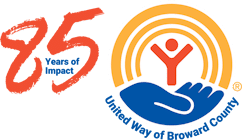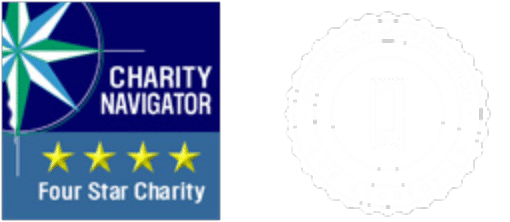Plus Ways You Can Drive Change Through Civic Involvement
In mid-March, a collective of United Way of Broward County’s board leadership, staff, and members of our Public Policy Advisory Committee will participate in Broward Days.
This powerful, multi-day forum is an annual event in Tallahassee where business leaders, nonprofit partners, and local elected officials meet with members from Florida’s Senate and House of Representatives to discuss how new legislation could affect our community and what issues Broward County is facing.
These discussions are separated into committees called Impact Teams. The on-going work of the volunteers on the Impact Teams identifies current and pressing needs of our community, supports advocacy, and helps ensure Broward County is a better place to live and work.
We recently spoke with Bruce Suarez, Director of Public Policy and Strategic Initiatives at United Way of Broward County, about the focus of this year’s Broward Days and how everyday citizens can participate in policy decisions to directly improve the health and well-being of our community.
Q: What is layman’s definition of Broward Days?
Suarez: Every year for two days, multiple entities across Broward — community leaders, business owners, the Broward League of Cities, county commissioners, nonprofit leaders— join each other and travel to the state capitol to learn what policies for the legislative session will impact our county.
Our team from United Way of Broward County also meets with members of both chambers to advocate for policy priorities meant to positively impact people in our community. For almost 20 years, Broward Days has had a large presence in the state legislature. It’s a big, big event with many of our community stakeholders talking to elected officials about what’s important to them as well as what’s important to Broward’s community organizations and businesses.
Q: What is on this year’s agenda?
Suarez: Our focus, as always, is the ALICE population — people who are working hard but still unable to afford all household necessities, like food, transportation, utilities, childcare, and more. Here in Broward County, 50% of all households fall under the ALICE threshold, and we have 2 million residents in total, so half of our community is living on or right above the federal poverty level. It is a crazy number considering these families are one emergency away from poverty.
Our 2025 Consensus Legislative Agenda mirrors United Way of Florida’s legislative agenda — targeting policies that address financial stability, education, behavioral health, and care for Veterans.
Some of the highlights for this year’s agenda include:
- expanding income eligibility for childcare and early learning subsidies for working families
- developing diverse and robust housing options, specifically for households with low to moderate incomes
- preserving existing affordable housing stock, specifically to help Broward’s rising population of seniors
- ensuring people with lower incomes have access to high-quality, fresh food
- strengthening outreach efforts to Veterans, specifically female Veterans and hard-to-reach populations
- increasing transparency and data availability on behavioral health investments and related outcomes
- integrating behavioral health into pediatric primary care and educational settings, including telemedicine
Q: What are some of the connections to United Way of Broward County’s pillars?
Suarez: For financial prosperity, one of our priorities is supporting state-level policies concentrating on the rehabilitation of underutilized, vacant, and abandoned properties to increase the availability of affordable housing. We also are advocating for increased funds and policy support to expand affordable housing development and preservation. We will look at what cities are filing appropriations or project requests for affordable housing projects that are currently ongoing from the state.
In regard to education, we brought back a policy priority that we’ve been very passionate about — which is advocating for the increase of state funding to foster the expansion of community partnership schools throughout Florida, similar to our United Way’s Gulfstream Academy.
For health, we support increased funding for evidence-based substance abuse and behavioral health prevention programs to reduce the need for intensive treatment. And for Veterans, we have many different areas of focus, and one notable example is supporting the access to hyperbaric oxygen therapy, which is used to treat traumatic brain injuries.
Q: Why are volunteers and donors essential to the work with public policy?
Suarez: Our Public Policy Advisory Committee is made up of around 30 community stakeholders who volunteer and who truly care about Broward County. We meet monthly to discuss what is happening policy-wise in our county and what is happening at the state and federal levels impacting people in our community.
The expertise, insight, and value these volunteers bring to the table is unmatched. They are recognized powerhouses in Broward, and at our committee meetings, attendees have included state senators and members of congress. Recently, Speaker of the Florida House Danny Perez and Broward Legislative Delegation Chair Representative Marie Woodson joined us to tell our volunteers and stakeholders what the next legislative session might look like.
Q: How can people get involved in this kind of civic engagement?
Suarez: There are a lot of things happening in our country, and people want to understand how they can contribute to the betterment of their communities. The first thing I would recommend is to begin your civic engagement by attending your city commission’s meeting and learning about what is happening locally.
Second, I would contact your state representative, state senator, and congress person to voice your concerns of any policy that will or could affect you. Our elected officials are there to serve you and are more accessible than many think. You can find who represents you at any level of government with your zip code through a quick search on Google and then contact this official through the provided email or phone.
And third, there’s plenty of opportunities for you to get involved with local nonprofits like our United Way. Some may have a government affairs, public policy, or civic engagement committees, and they can have the government connections who may support your concerns.
United Way of Broward County has frequent communications with local municipalities and our state government. As the head of United Way of Broward County’s Public Policy Advisory Committee, I am always available to discuss relevant issues. Anybody in Broward County who has interests in advocacy and policy efforts is welcome to contact me to become a part of our committee’s processes. Then we can discuss how your knowledge and experience can make a difference to the impact we are making.
For more information about our United Way’s impact on public policy initiatives, click here.

